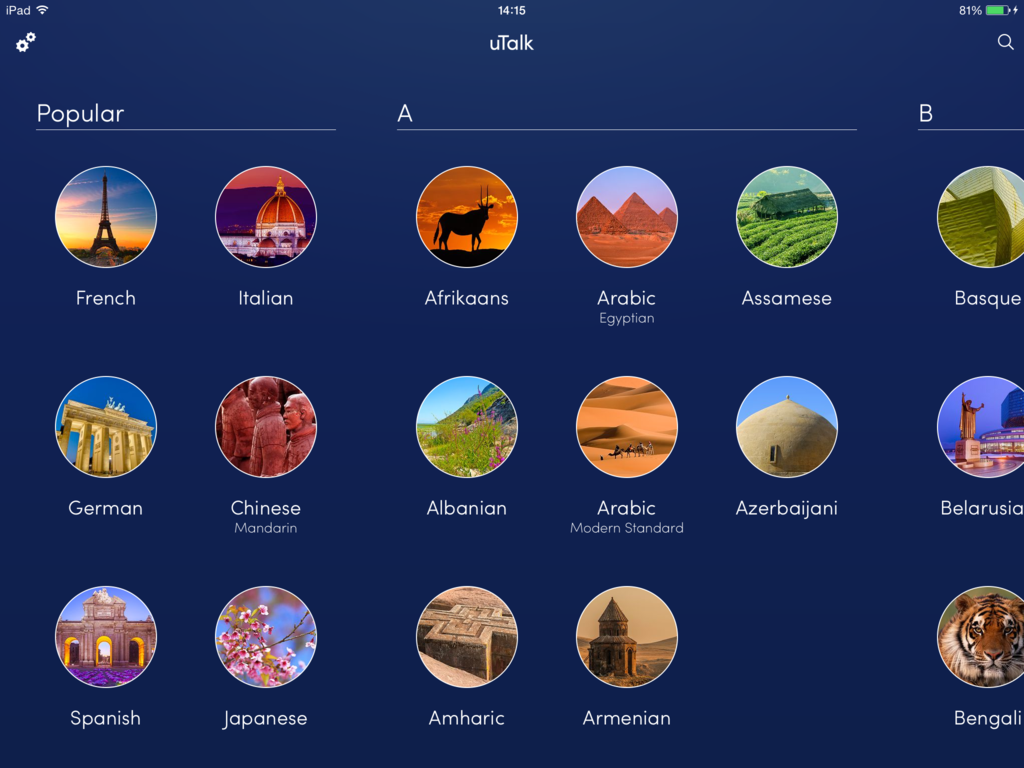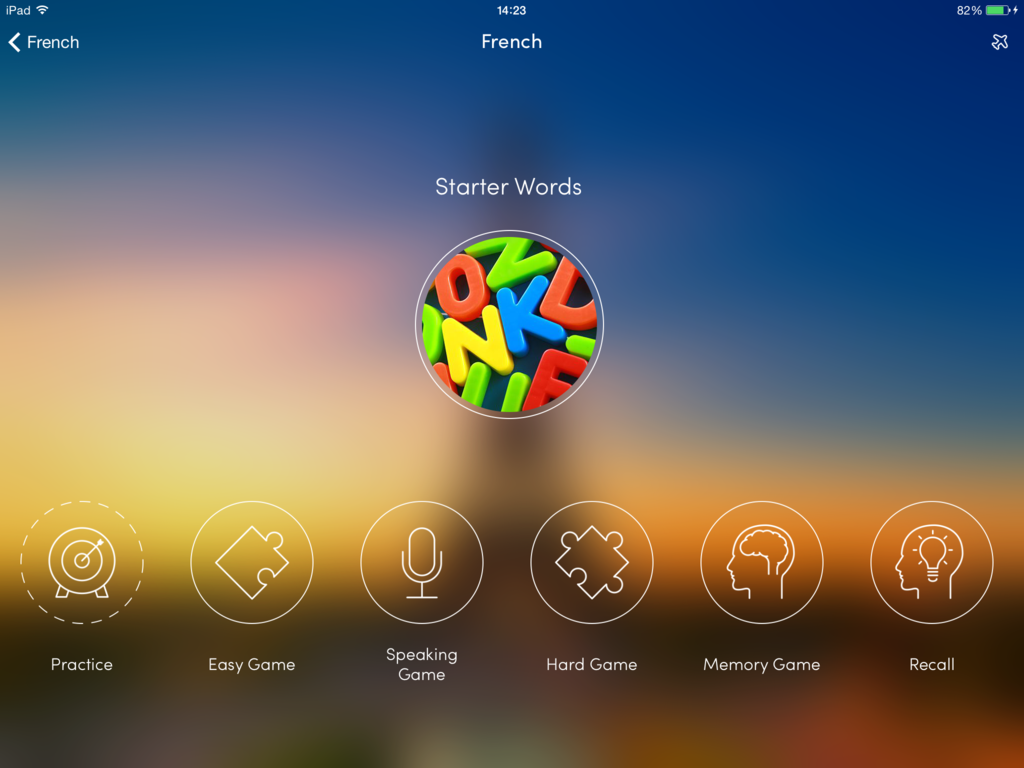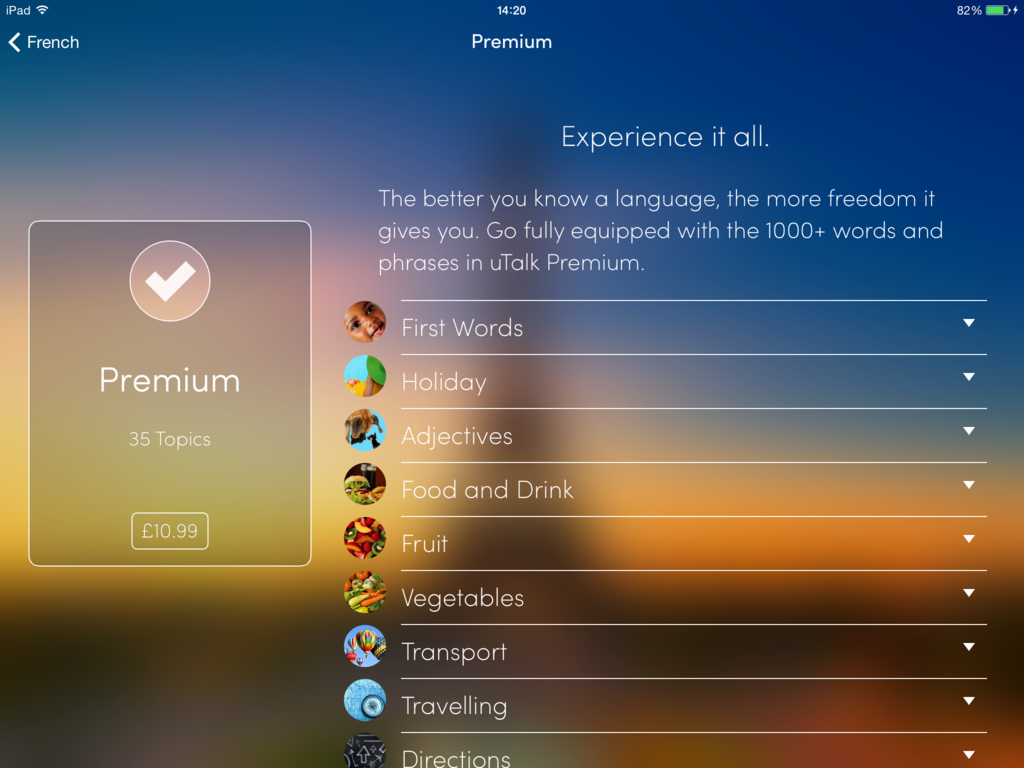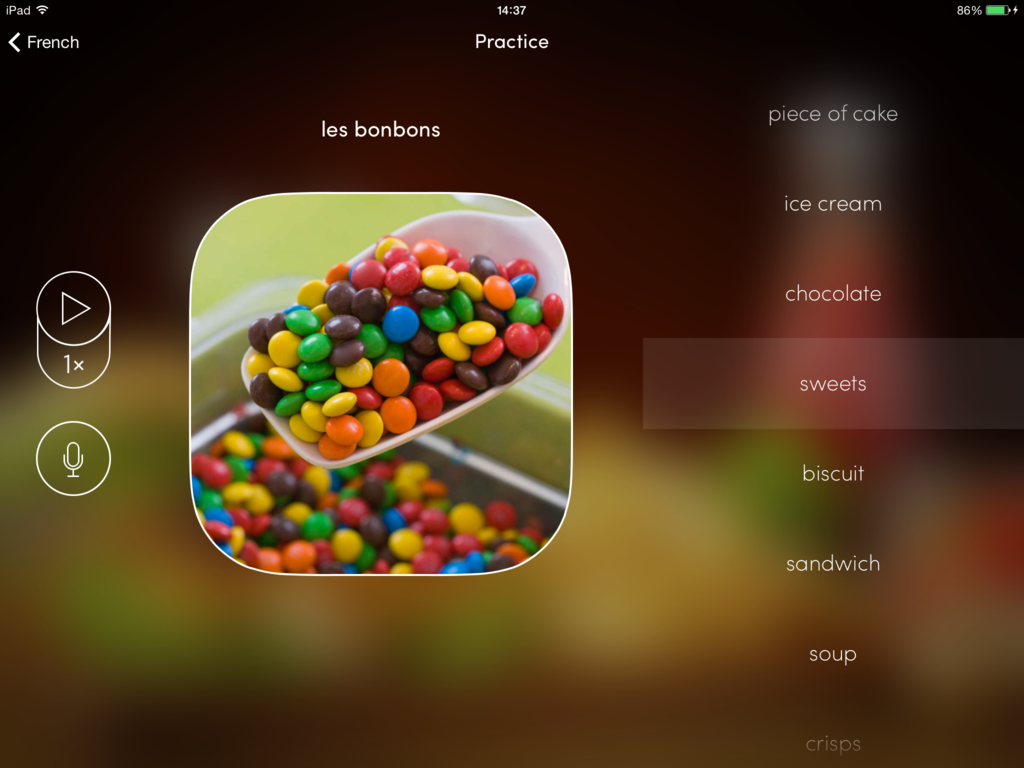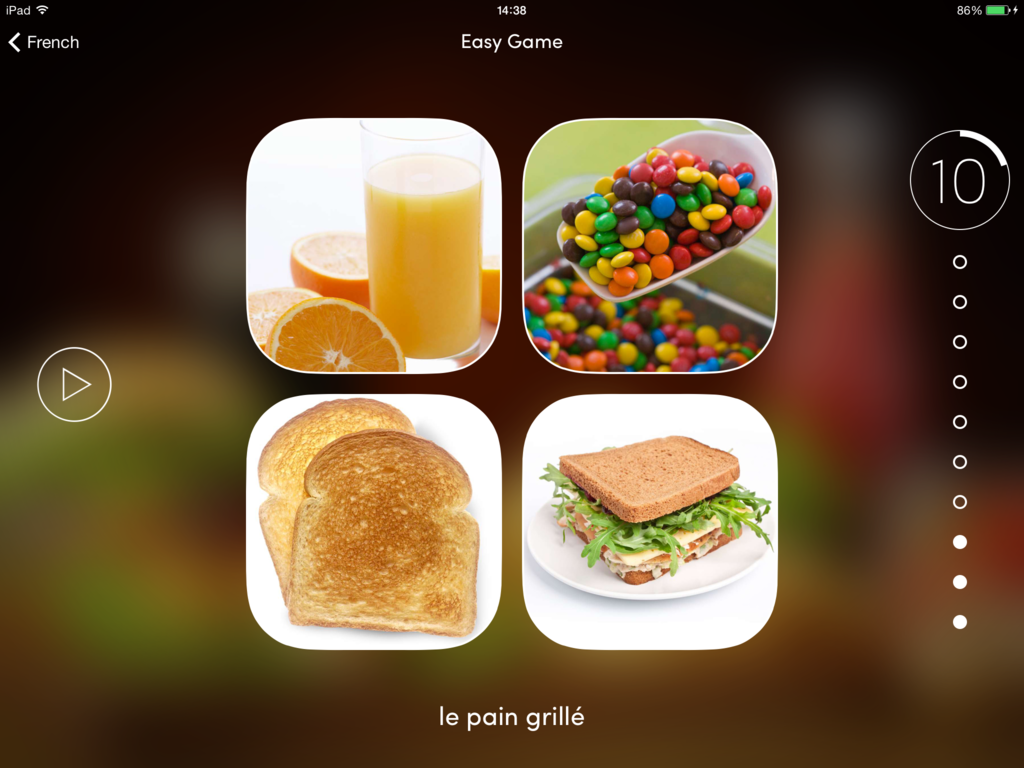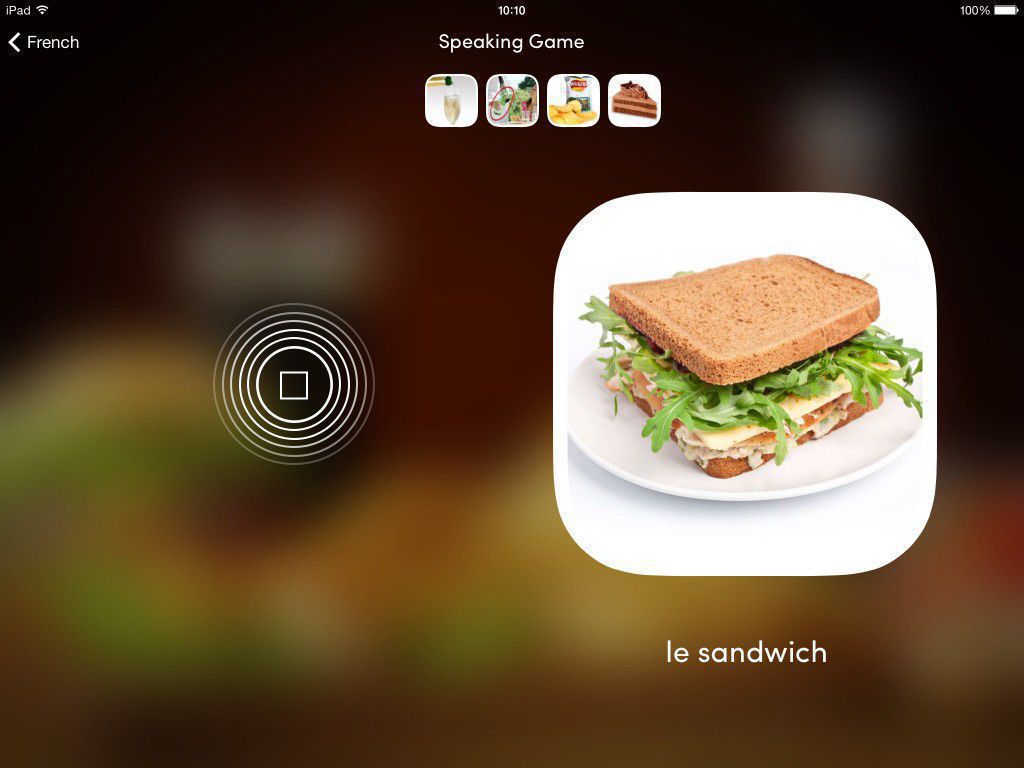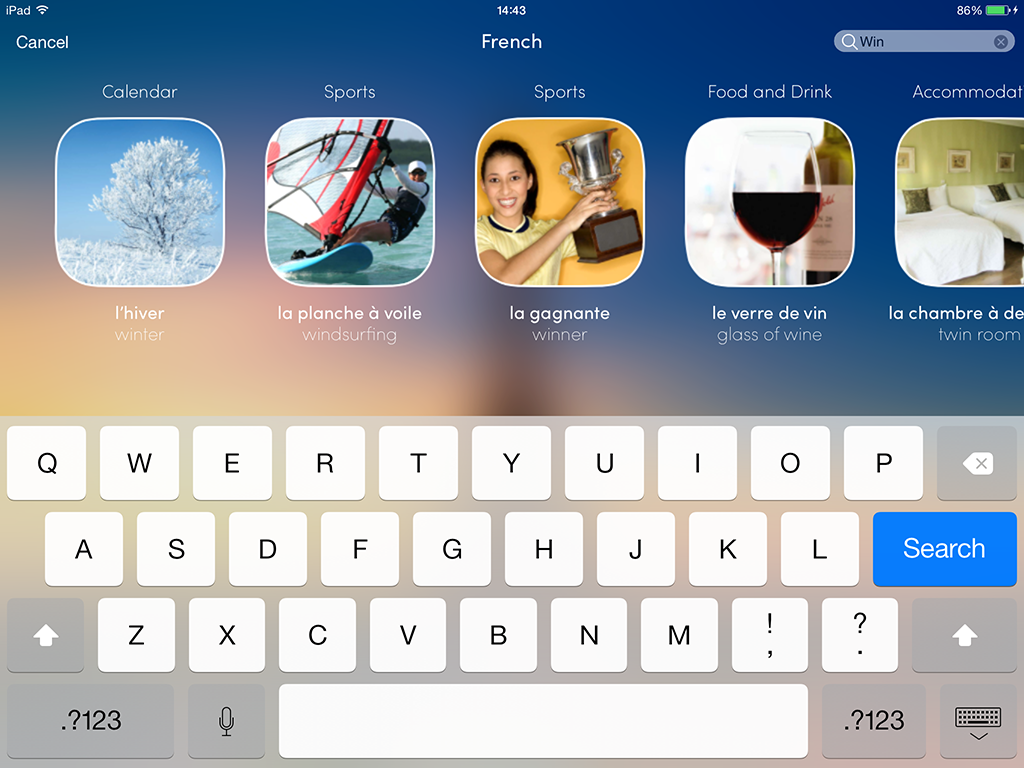Counting the days: Reuben can’t wait for his 4th Junior Language Challenge
In today’s blog post, father and son Joseph and Reuben share with us their JLC story and how learning made fun got them counting the days until this year’s competition.
If you’re a parent or teacher of children aged 10 and under in the UK, visit juniorlanguagechallenge.com to find out more about our annual competition, which opens on Friday 11th March.
Reuben was just 6 and in Year 2 when a teacher with a passion for languages opened the JLC to this year group for the 1st time. Reuben got stuck in to learning Spanish, then Greek, breezed past most of the school including the Y6s and in to the East-Midlands’ semi-final. He came 4th. This was an inspiration to the other children that left them waiting for the next JLC. His success justified an early introduction of Abbey Road children to the exciting challenge of learning a new language. The sheer passion and excitement with which he approached the languages, the colourful child-friendly software and the brain-teasing range of games that increased in difficulty as his competence increased and introduced the language as it might be used in every-day life, kept him glued to learning, so much so that he was at it during every waking moment. For once, we parents did not have to battle with him to get off his game console or the iPad! Most importantly he remains as enthusiastic and motivated several challenges on.
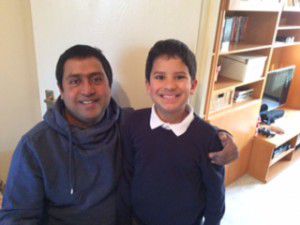 Reuben waited eagerly for his next shot at the JLC in Year 3. While the 1st round was a doddle for him, he crashed ignominiously out of the semi-final, learning an important life lesson, that there is no substitute for hard work. Rather than letting this get him down, he worked very hard and consistently in Year 4, at gaining a working knowledge of Portuguese, then Mandarin and qualified for the final in London. He was very excited and enthused by his success and immersed himself in learning Arabic for this. The fierce competition did not deter him but rather spurred him on and he came 13th after a hard fought set of heats.
Reuben waited eagerly for his next shot at the JLC in Year 3. While the 1st round was a doddle for him, he crashed ignominiously out of the semi-final, learning an important life lesson, that there is no substitute for hard work. Rather than letting this get him down, he worked very hard and consistently in Year 4, at gaining a working knowledge of Portuguese, then Mandarin and qualified for the final in London. He was very excited and enthused by his success and immersed himself in learning Arabic for this. The fierce competition did not deter him but rather spurred him on and he came 13th after a hard fought set of heats.
Having enjoyed himself so much and coming within a hair-breadth of winning, he continues his JLC journey. He cannot wait for this year’s challenge to begin. He is counting the days!
Joseph Chandy
___
I started the Junior Language Challenge in Year 2 at the age of 6 and have taken the Challenge every year since then. It is an amazing experience that I look forward to.
I love languages and was extremely interested in participating. I loved the way the games were laid out. This makes them really easy to understand and play and most importantly, it makes the whole experience really fun. No matter how hard the language is or may seem, EuroTalk makes it easy to learn and understand.
JLC combines two extremely important things in life, having lots of fun and language learning. It’s definitely not boring; it’s one of the best and most exciting experiences you can have. I love the competition it creates; the urge to win in all competitors is great. One of the things I love about the JLC is how you can share the massive excitement and competitiveness with other people who are also in the challenge. I strained to be at the top of the scoreboard, competing with my friends Adam and Farah Akbar and many others.
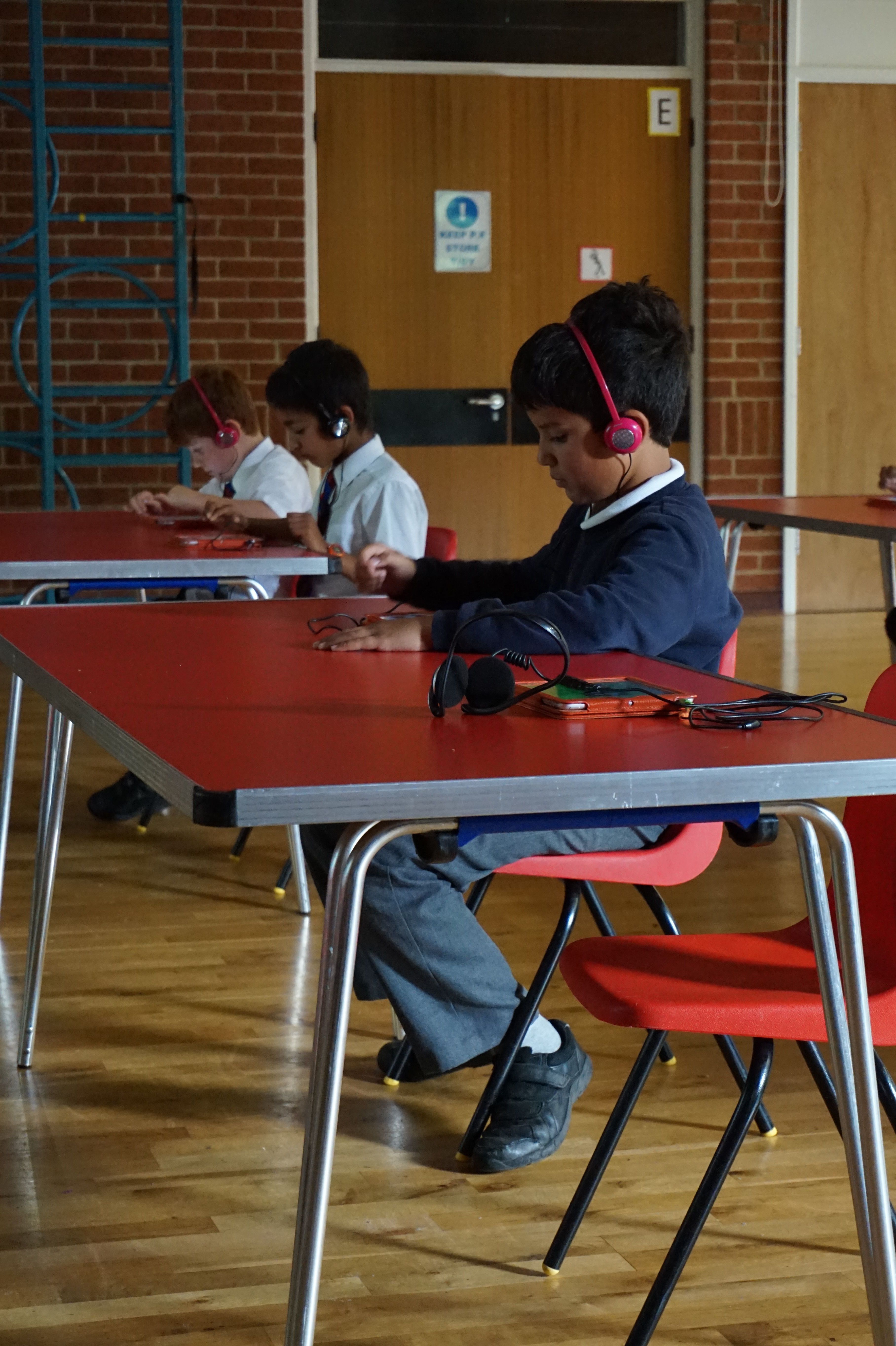 Getting to the semi-final and final is a special feeling I will never forget. The feeling that you’re among the best of the massive amount of participants is simply amazing. The best thing is, the entrance fee is only £5 and it goes to an absolutely wonderful cause, a non-profit organisation called onebillion, whose sole aim and cause is to give the children in Malawi a better education and a much brighter future.
Getting to the semi-final and final is a special feeling I will never forget. The feeling that you’re among the best of the massive amount of participants is simply amazing. The best thing is, the entrance fee is only £5 and it goes to an absolutely wonderful cause, a non-profit organisation called onebillion, whose sole aim and cause is to give the children in Malawi a better education and a much brighter future.
I hope that more people can join the Junior Language Challenge and share this brilliant experience. I love the Junior Language Challenge and I will never forget it. JLC 2016 is a few mere days away!
Reuben Chandy
uTalk – Learn a Language: A Guided Tour
If you follow us on Facebook or Twitter (or maybe even if you don’t) you’ll know that we recently released a new update for our app, uTalk. And we’re really, really excited about it; not only does it now work on iPads, it’s got 130 languages included and it looks gorgeous. So I thought I’d give you a quick guided tour, so you can see what all the fuss is about.
Choose your language
Once you’ve download the app, the first thing you’ll probably notice is that it’s got loads of languages. From French, Spanish and German, through to Lao, Kachchi and Cebuano, we’ve got them all (and if we don’t have the one you want, we probably soon will – let us know what you’re waiting for in the comments).
The best bit is if you’re just curious and want to hear what a language sounds like, it won’t cost you a penny, because uTalk gives you a Starter Words section in all 130 languages completely free.
Starter Words
These Starter Words include the essentials that you’ll need when you first arrive in a new country – ‘hello’, ‘please’, ‘thank you’ and ‘help’ (hopefully you won’t need that one, but it’s always a useful word to know!) among others.
There’s also a selection of games to help you remember these key words, so you’re totally prepared before you step off the plane.
Upgrades
If you’re anything like me, though, once you’ve learnt a few words you won’t want to stop. So uTalk gives you the chance to learn more, with the Essentials and Premium upgrades.
The Premium will unlock 1,200 words and phrases across 35 categories for the language you choose – and that’s when it gets really fun. The app’s got everything from food and drink and travelling, to adjectives and numbers up to ten million. You can order a beer, ask someone to dance and check you’re on the right train (again – useful).
How it works
Ok, let’s get down to business. You’re going to France for a few days, and you want to learn some French before you go. How should you use uTalk?
First, choose your topic. Then, start with the Practice; this is where you learn the vocabulary. You can listen as many times as you like, slow it down, even have a go yourself with the recording button. Each word or phrase has a corresponding picture, which will help you remember it later, and they’ve all been translated and recorded by native speakers.
Then it’s time for the games. Start with the easy game, because it’s – well, the easiest. You’ll be shown some randomly selected pictures and hear one of the words you’ve just learnt. Choose the correct picture to carry on and start scoring points.
Then work your way up through the games, which get gradually more difficult. Be warned, they’re very addictive, so you may miss your stop because you’re concentrating so hard. And you might get some funny looks when you play the recording game on the train. I speak from experience on both of these things…
World Tour
Hidden throughout the app are 48 achievements. No, I won’t tell you what they are – but every now and again you’ll see a message pop up that says ‘World Tour Destination Unlocked’, and then at the end of that game, you can go and see where you’re heading off to.
Tap on the destination and watch your plane take off. To see how many destinations you’ve collected (and how many you still have to find) touch the grid icon at the bottom of the screen.
Instant Search
Of course this is all well and good, if you have time to sit and learn the language before you leave home. But what if you don’t?
No worries – just take uTalk with you, and any time you need a word, type it into the search box. (I used this feature myself when I went to Italy a few months ago and it saved me more than once.)
So what do you think? If you’re ready to give it a try, you can download uTalk from the App Store for free right now (no camping out required!). And we love customer feedback, so please do tell us what you think of the new design and features.
Most importantly, we really hope you enjoy using the new uTalk as much as we enjoy telling people about it 🙂
Liz
Learning a language – our top 10 tips
We all know learning a language is a great idea, but sometimes it can be hard to get motivated or to find the right way to learn. Here are our top 10 tips to help you get started.
1. Tell everyone you know that you’re learning a language.
This way, when you’re tempted to give up or chicken out, you might think twice knowing they’re all expecting great things from you. I call this ‘the biscuit tin method’; if you tell everyone you’re giving up biscuits, you’re a lot less likely to cave, just in case you get caught with your hand in the tin. It worked for me – I haven’t had a biscuit in years. Well, not out of the tin, anyway.
2. Start with the basics.
We know you might be learning French for an important business meeting, but you may not get a chance to show off the fact that you know how to say ‘Sales in the retail sector are growing steadily’, if you’ve not yet learnt how to say ‘hello’.
3. Don’t be scared to talk to people.
You might get it wrong sometimes, but if you don’t try, you’ll never get it right, either. In the immortal words of Richard Branson, ‘You don’t learn to walk by following rules. You learn by doing, and falling over.’ Learning on paper is all well and good, but talking to people and making mistakes is the best way to pick new things up. And you’re more likely to get it right next time, because you’ll remember the situation you were in as well as just the word or phrase.
(This works both ways, actually – if you know someone who’s learning your language and they say something incorrectly, let them know about it. Not in a mean way, but in a helpful, constructive way so they understand where they went wrong and can get it right next time. And you’ll probably find it helps you understand your own language better, too.)
4. Don’t worry too much about grammar to begin with.
Yes, it’s important, but if you’re making the effort to talk to someone in their own language, as long as you can make yourself understood, they probably won’t mind if you get your verb ending wrong. So get your basic vocab and some stock phrases down first, then you can start learning some basic grammar to help you create your own sentences and take your study of the language further.
5. Make yourself some flashcards.
Or use a computer program or mobile app. (We hear uTalk‘s quite good…) Introducing an element of competition can be a good motivator, so see if you can team up with someone else who’s learning the same language and test each other, or compare your online scores. If you don’t have time to sit down and make flashcards, you could try labelling things around your house or workspace, so you see them all the time and the vocabulary will start to sink in without you even realising.
6. Find someone to talk to.
If you’re learning for a trip, then this is easy; there’ll be loads of people to chat to when you get there. But if you’re just learning for fun, try and find someone to practise with. A lot of the world is so multicultural now that it’s possible to find a native speaker of just about any language living just down the road. But even if you can’t, there are loads of websites where you can find someone to Skype with, even if they live on the other side of the world. For instance, italki is free and lets you connect with language teachers and native speakers around the world. The best part is, you might make a new friend, which can only mean one thing – cheap holidays…
7. Read, watch and listen to anything you can find.
If you’re at home, this could be newspapers, books, movies, music or websites. Or if you’re travelling, look at signs, menus or product packaging. If there are words you don’t understand, make a note of them and look them up later, or ask someone. You’ll probably be surprised how much you can piece together on your own, and that’s a great confidence boost.
8. Go to the country.
Even if you’re just learning for fun, there’s no better way to learn a language than to immerse yourself in it. Plan a holiday – if nothing else it’ll give you something to look forward to and will motivate you to keep learning. Visiting a country also means that you’ll learn the ‘real’ way of saying things – you might have learnt the correct way but when you arrive, you’ll find nobody actually talks that way.
9. Don’t give up.
It’s not easy to learn a language, but we all have the ability. There really is no such thing as someone who’s bad at languages. So if you’re finding it difficult, hang in there; it’ll be worth it in the end. And keep practising, because you may find all that vocab you spent ages learning will drift away if you don’t. Which seems like a shame.
10. Enjoy it.
We all remember our school days, studying French verbs and monotonously repeating meaningless sentences about your cats on tables. But learning a language can open up a world full of opportunities, new friends and different ways of seeing the world around us. So why make it a chore? Be creative – everyone’s different so do whatever works for you. You could try singing, for example. Or blogging about your learning journey. Try different things and see what works. And then tell us about it – we’d love to hear from you 🙂
Good luck!
Liz (with contributions from Alex and Nat)
You can now read and share this post in a handy infographic!
An Olympic Challenge
The Olympics are only a couple of weeks away and with estimated viewing figures of over four billion, and visitor numbers expected to boom, it seems the eyes of the world will shortly be focused on London.
 The stadium is ready, transport tests are being carried out and athletes are getting in their final hours of training. With 205 countries taking part, and hundreds of different first languages, how do you ensure that Rafa Nadal doesn’t end up walking bemused around the Olympic stadium rather than Wimbledon, and that Usain Bolt knows where to buy chicken nuggets before the 100m final?
The stadium is ready, transport tests are being carried out and athletes are getting in their final hours of training. With 205 countries taking part, and hundreds of different first languages, how do you ensure that Rafa Nadal doesn’t end up walking bemused around the Olympic stadium rather than Wimbledon, and that Usain Bolt knows where to buy chicken nuggets before the 100m final?
Being the largest and one of the most multicultural capitals in Western Europe does have its advantages; with 200 ethnic communities, and more than a third of its population speaking at least two of over 300 languages present within London, the Olympic organizers have spent the last two years recruiting volunteers for a vast array of opportunities to ensure the games are a success.
Adverts were posted stating the huge advantages of having a second language and this has resulted in over 1,000 volunteers being selected to man vital information points in the stadium and at major transport links. With Royalty, Presidents and VIPs arriving from all over the world, and with athletes having to be briefed, debriefed, transported and organised, the games have given language learners a great opportunity to become an integral part of the games itself.
It is no wonder then that when Nelson Mandela was asked his opinion on the games he replied, “I can’t think of a better place than London to hold an event that unites the world.”
Will you be watching the Olympics? Or are you coming to London? Maybe you’re even one of the 1,000 volunteers? We’d love to hear what you think about the games and the city.
Glyn
